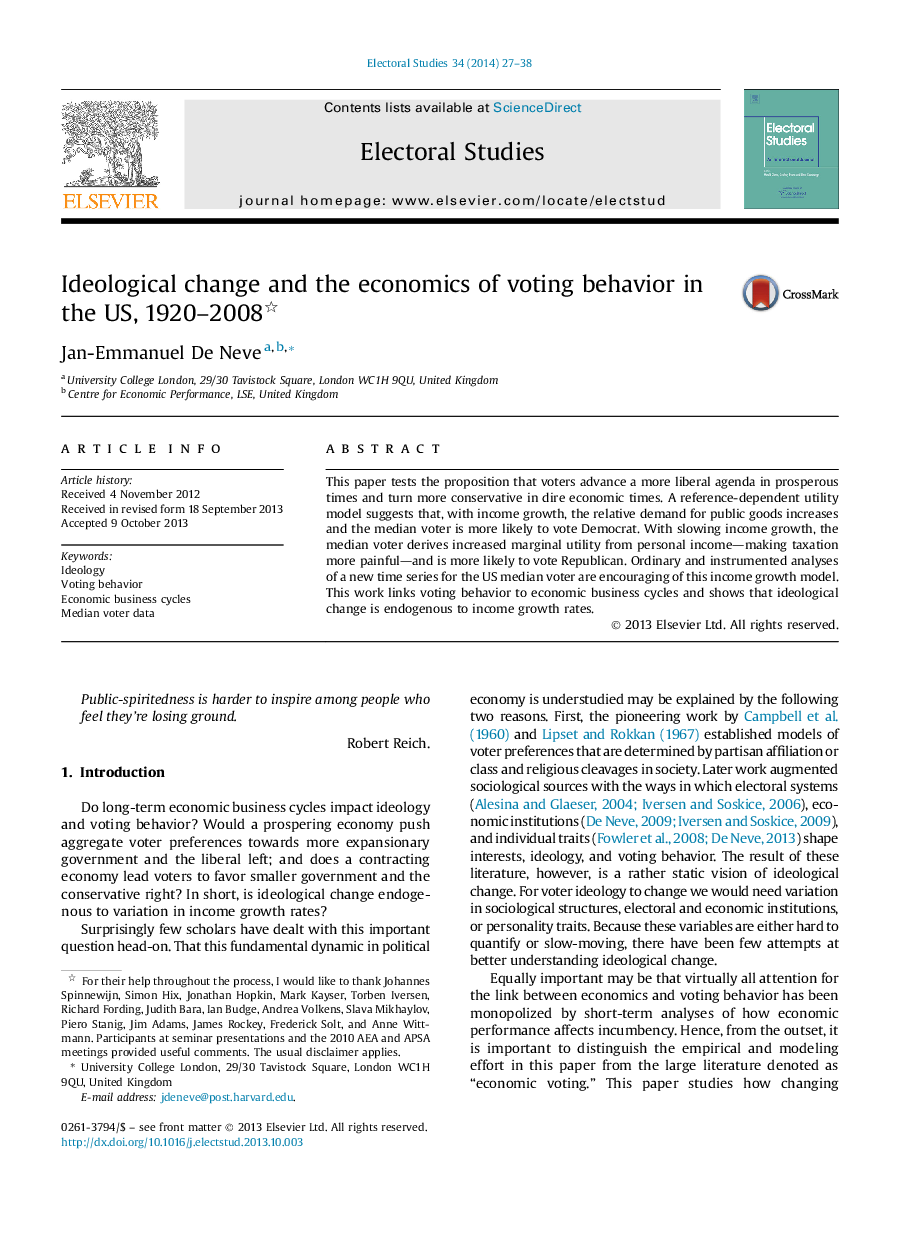| Article ID | Journal | Published Year | Pages | File Type |
|---|---|---|---|---|
| 7464386 | Electoral Studies | 2014 | 12 Pages |
Abstract
This paper tests the proposition that voters advance a more liberal agenda in prosperous times and turn more conservative in dire economic times. A reference-dependent utility model suggests that, with income growth, the relative demand for public goods increases and the median voter is more likely to vote Democrat. With slowing income growth, the median voter derives increased marginal utility from personal income-making taxation more painful-and is more likely to vote Republican. Ordinary and instrumented analyses of a new time series for the US median voter are encouraging of this income growth model. This work links voting behavior to economic business cycles and shows that ideological change is endogenous to income growth rates.
Keywords
Related Topics
Social Sciences and Humanities
Social Sciences
Geography, Planning and Development
Authors
Jan-Emmanuel De Neve,
